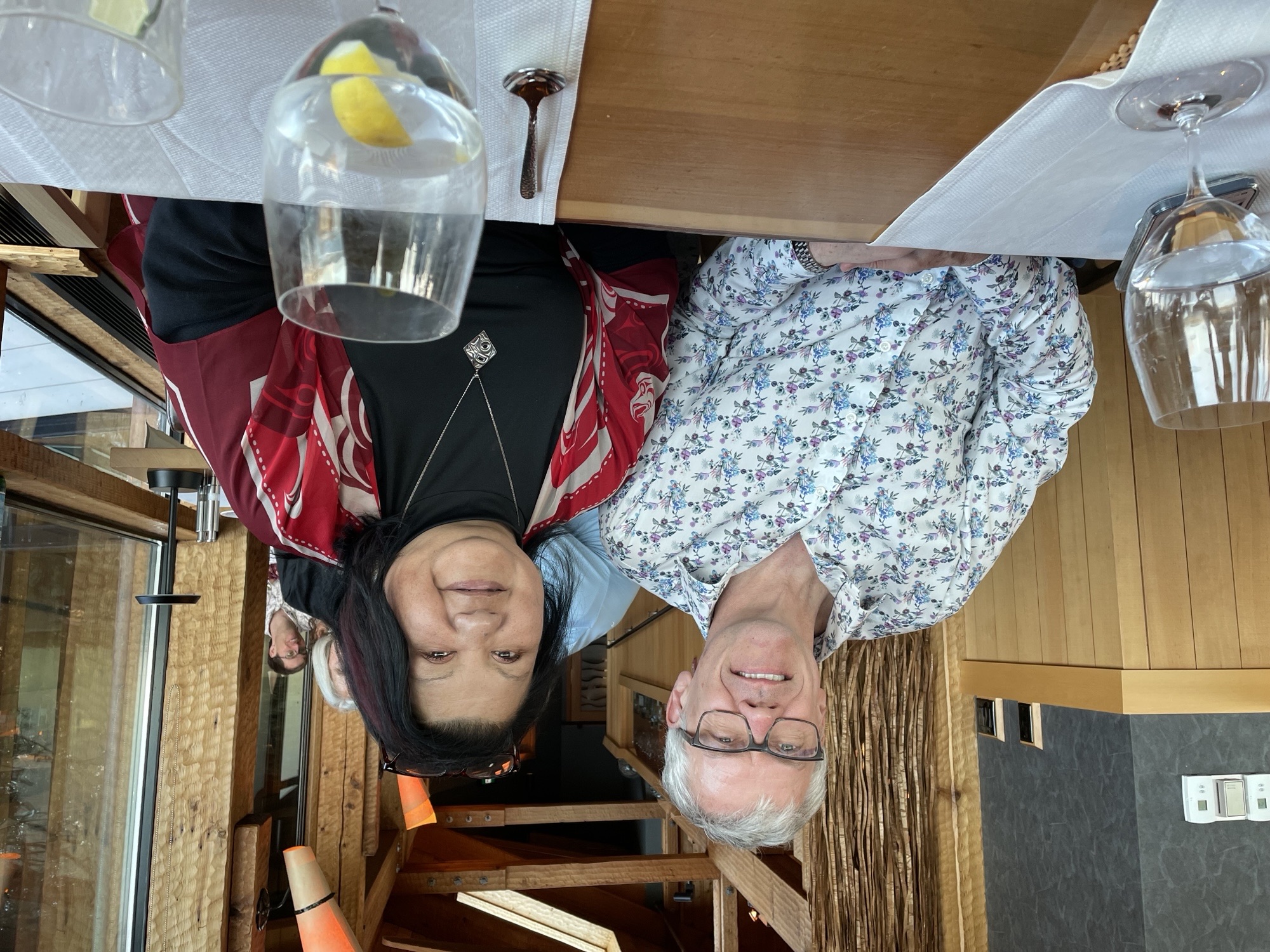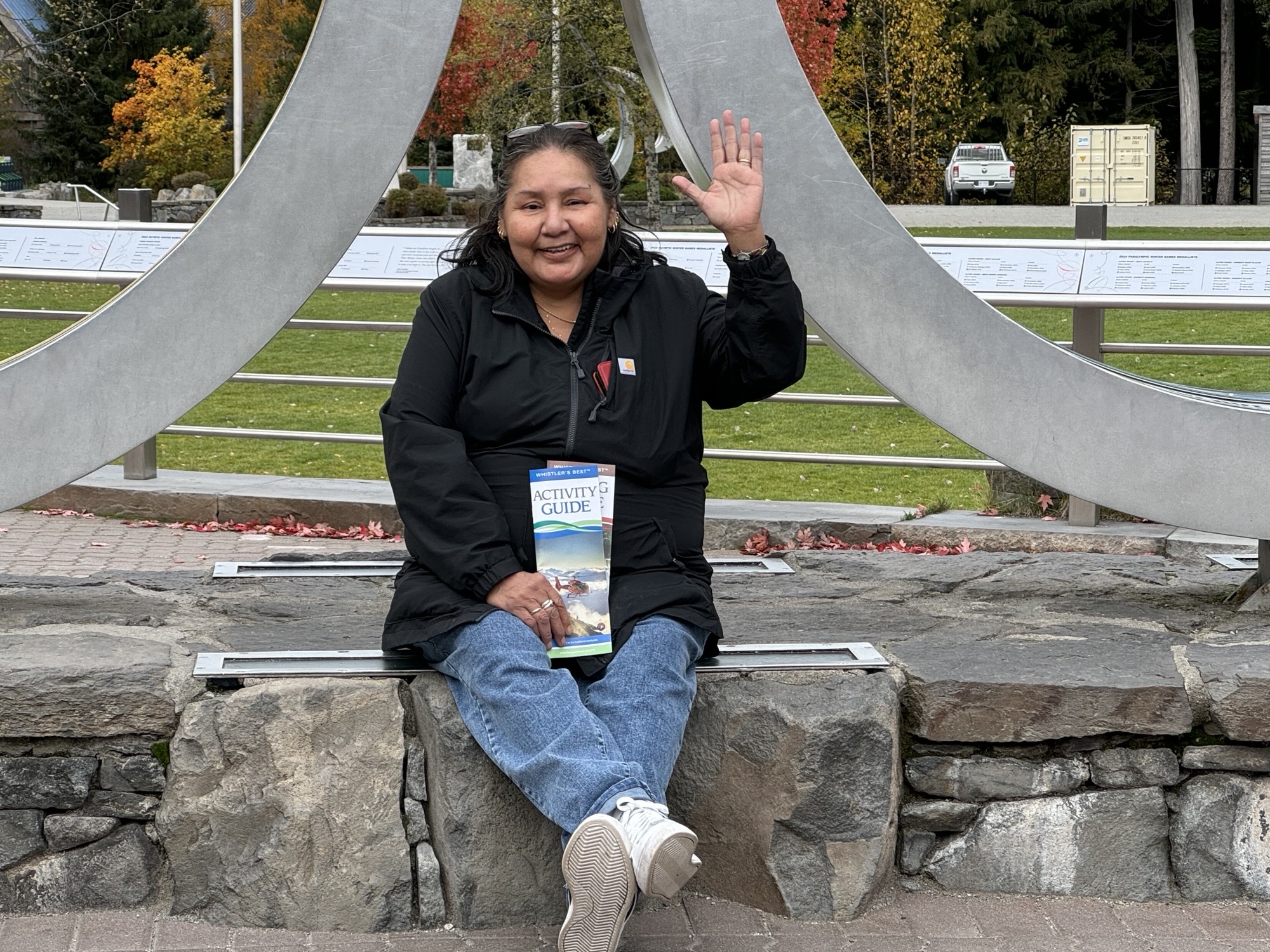For several years after being told she had chronic kidney disease, Carolyn Klaassen was able to manage her disease through a change in diet. Though her kidney function kept getting worse, she was able to swim and stay active. Finally, the Vancouver woman had to start dialysis in May 2023, going to the clinic three times a week for four hours each time.
“I didn’t feel better at all on dialysis. I was either on dialysis or sleeping. I would get home from the clinic, have a renal shake, and then go to bed at 7 p.m. I felt so sick I felt like I was dying,” Carolyn, now 55 years old, remembers.
Carolyn was added to the deceased donor waitlist. That summer, she and her family booked a cruise over Christmas. She thought it would be her last family vacation because she was sure she was going to die.
But as Carolyn’s kidneys were failing, one of her brothers had started the process to be a living kidney donor. It turns out his kidney was not a match for Carolyn’s, but he was willing to donate to someone else in exchange for a kidney that was a match for his sister. In October, Carolyn got the call to say there was a match and the medical teams were working out the details.

Carolyn and her brother
A few weeks later, Carolyn found out her kidney transplant was scheduled for December 14. Her brother’s donor surgery would be a month later.
Carolyn laughs as she says, “I phoned my dad to say ‘I have some good news and I have some bad news.’ He asked for the good news first. I told him I’m having my transplant surgery on December 14, so the bad news is I can’t go on the cruise. But it’s the best Christmas present ever.”
After her transplant, Carolyn immediately felt so much better.
“The colour came back to my face, I had energy. I could eat anything I wanted with no more restrictions on food,” Carolyn comments. “My cousin made spaghetti and meatballs for me and brought it to the hospital. I hadn’t had spaghetti in eight years!”
The renewed energy couldn’t have come at a better time for Carolyn’s life work.
Carolyn is Indigenous, originally from Ontario, and was adopted into a white family when she was a baby. With two older brothers and a young brother, she was the only girl in the family and got spoiled growing up. She grew up in a Lutheran church and she credits her faith with getting her to where she is today.
“I believe Creator God has been with me my whole life. He brought me into a family who loves Creator God, gave me shelter, food, three brothers who love me as their own, and parents who will do anything for me. He gave me the strength to get through all I have been through.”
Her parents were open about Carolyn’s adoption so she has always known it was part of her history. Not long after the family moved to BC in 1987, Carolyn started the search for her birth family. She eventually found her birth mom in Parry Sound, Ontario, and flew out to meet her and her Ojibway community.
Carolyn’s adoptive parents were told that her birth mom was Indigenous and her birth father was white. They were too young to keep their baby so they put her up for adoption. But the truth was very different. After meeting her birth mom, Carolyn learned her roots were embedded in intergenerational trauma, deeply impacted by the Sixties Scoop and residential schools. She met many other family members during that visit, but felt especially connected with her brother Michael. He was a shaman in their community.
“He was the one who started telling me our creation story,” Carolyn shares. “He told me so many things like, ‘This is the medicine wheel,’ ‘This is why we give tobacco when we meet our elders,’ ‘These are the medicines we use when smudge.’”
In 2015 when Canada concluded the Truth and Reconciliation Commission and presented its 94 “calls to action,” Carolyn started teaching about Truth and Reconciliation within her congregation, sharing what she had learned from her brother. Her ministry started slowly, but she says the children in the church were involved from the beginning because they were already learning about Truth and Reconciliation in school.
Carolyn went on to complete her Certificate in Indigenous Studies at Vancouver School of Theology, combining her dual identity an Indigenous Christian. She is currently studying for her Masters of Divinity.
“The big change came when they found all those graves in Kamloops in 2021. Within three months, I did nine services,” she says. This happened at the same time as Carolyn’s kidney failure worsened.

But now with a new kidney, Carolyn is ready for the challenge. She knows there is much work to be done. She says anti-Indigenous racism continues to happen every day. Many members of First Nations communities live in abject poverty, struggling to deal with deep intergenerational trauma. During her transplant journey, she also met other First Nations people while waiting for blood tests and appointments, but did not see many resources specific to Indigenous patients who need a transplant.
“I truly believe I was born for a reason. I want to go across Canada to help other Indigenous people start doing what I am doing. Even if your community was not directly involved in residential schools, we are all part of Canada and children of Creator God,” explains Carolyn. “I recently started teaching about the powwow drum, which represents Mother Earth’s heartbeat and how we are connected to the Earth. I want people, especially First Nations people, to know there is hope. There is always hope.”
Carolyn holds a special place in her heart for the two people who have given her so much hope - her brother for stepping forward as a donor in the kidney paired donation program and her anonymous donor.
“I wish I knew who it was, and I wonder if they love coffee?? Since my transplant, I now drink coffee. Before, I only drank tea! I’m grateful and humbled that someone anonymous would give a life-giving gift like this.”
—-----
Did you know you can donate a kidney or part of your liver as a living organ donor? To learn more about living organ donation,
please visit our website.
Deceased organ donation is a completely separate process. To register your wishes on deceased organ donation, go to the
Organ Donor Registry. All you need is your Personal Health Number and two minutes.

